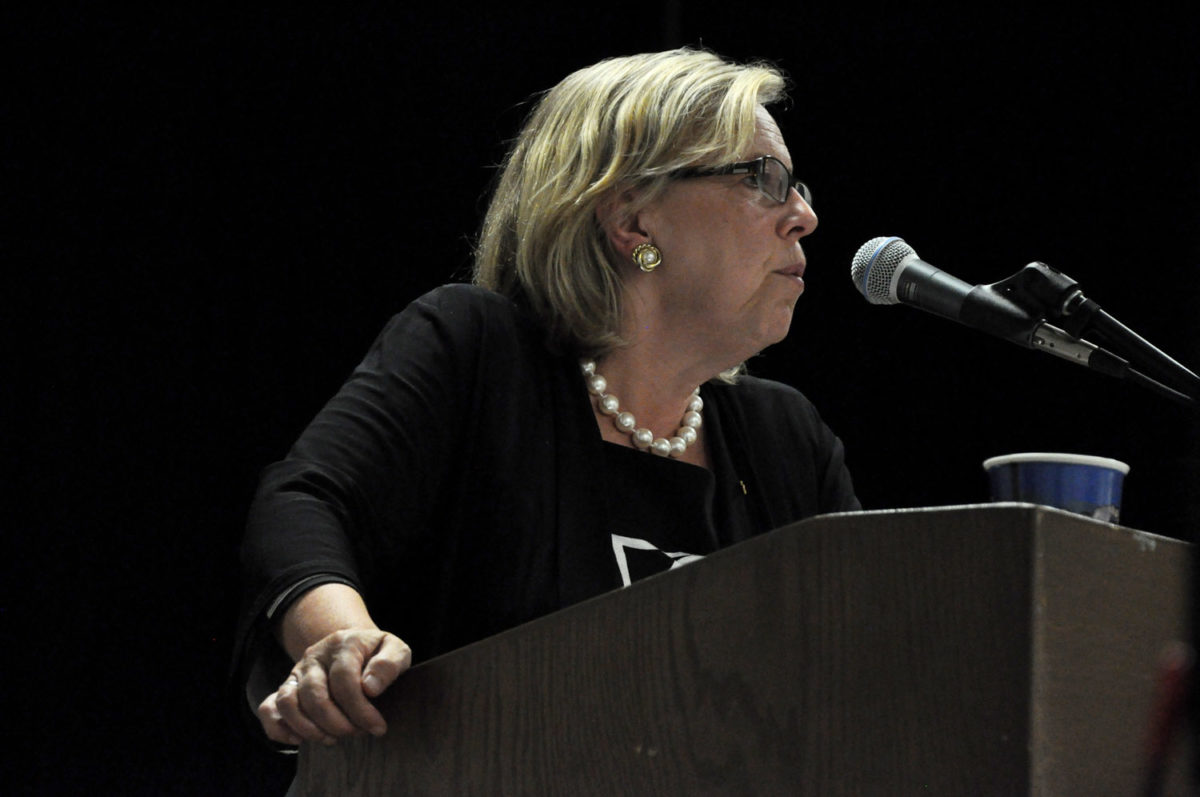
On Sept. 26 Green Party Leader Elizabeth May came to Fredericton in an attempt to nudge Canadians into debating changes to the first past the post electoral system.
“That way Canadians no longer run the risk of ending up with a government the majority of Canadians didn’t vote for because of a dysfunctional voting system,” said May.
She hopes to negotiate an agreement between opposition parties that would make concrete election reforms a priority. This would give the next administration a coalition of Liberals, NDP and Green Party members in the House of Commons with enough votes to push reforms through.
“We could just form a coalition government and then just pass a bill to implement a different voting system, but I think a change in how we vote will take citizen engagement,” said May.
To do so, two new websites have been designed to provide a forum where Canadians can debate the value of the FPTP electoral system and offer alternatives: www.truemajority.ca and www.fairvote.ca
Thursday evening’s visit to the Charlotte St. Art Center was one of a series of panels and town hall meetings organized throughout Canada as part of her Save Democracy 2013 tour. The tour focuses on voting reforms to push Canada into holding a national discussion on the health of our democracy.
STU international relations professor, Shaun Narine, agrees it may be time for Canada to consider the change.
“First past the post often means there is no point to voting because in your district, the support for a single party is so overwhelming it’s just a waste or at best a symbolic vote nobody will ever know about but you,” he said.
As an alternative, May proposes Canada avoid pure proportional representation and opt for a Mixed-Member Proportional Representation electoral system, similar to one used in Germany.
In a MMPR electoral system Canadians would vote for a regional representative in parliament. If the person you voted for doesn’t get in, then your vote still counts for something and goes towards a redistribution of seats in the house to parties by percentage.
On the other hand, the danger of pure proportional representation is sometimes the larger majority is not being represented because parliament is fragmented and fringe parties hold more influence than they would otherwise, said Narine.
Cited as an example by May, Germany has avoided parliamentary in-fighting by forming coalitions of larger parties. As long as two or three of them attract the majority of the vote, then a coalition representing the majority of Canadians can work together and form an effective government, said Narine.
“If democracy is about the majority’s will being represented then that kind of system has a much better chance of making that happen.”
